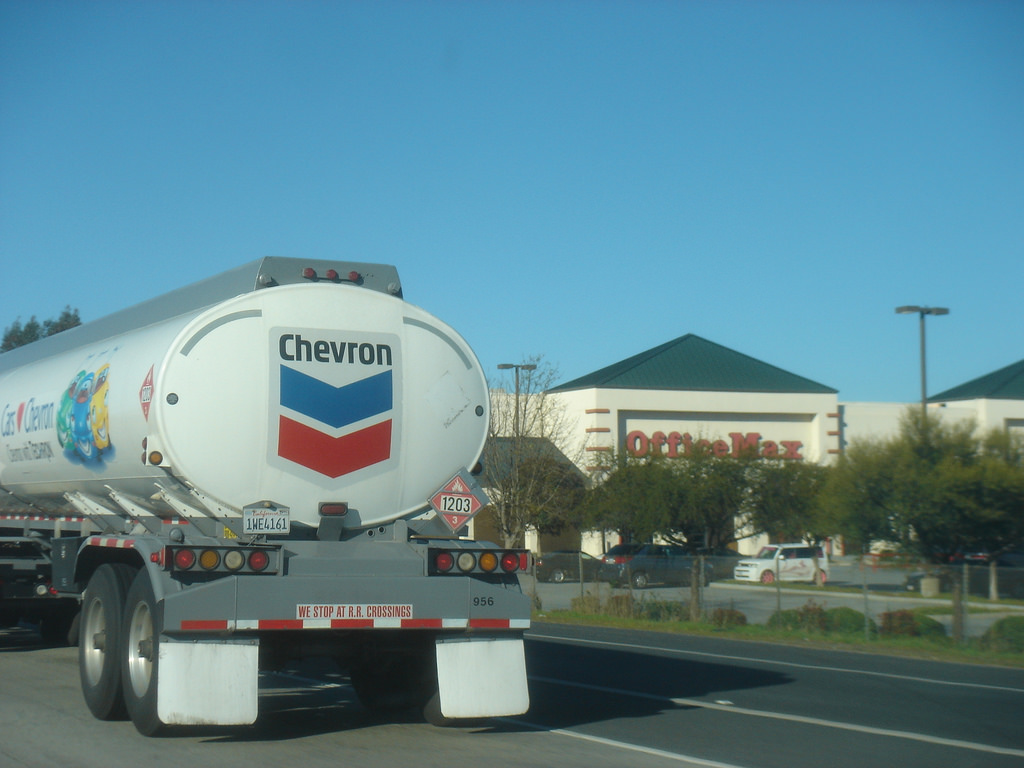The city of Richmond, California is the home of oil giant Chevron’s domestic headquarters. It also happen to be the ninth city in the United States to file a lawsuit against fossil fuel companies for their contributions to global climate change.
The lawsuit filed by the city lists Chevron as the lead defendant, but 28 other oil, gas, and coal companies are listed in the suit as co-defendants. Richmond joins eight other municipalities in the United States in filing similar climate-related charges against fossil fuel companies. All but one of the communities are in the state of California.
Richmond Mayor Tom Butt explained that the city has roughly 32 miles of shoreline, which makes the city especially vulnerable to the threat of rising seas. The city is surrounded by water on three sides.
The grievances listed in the suit by the City of Richmond are as follows:
Sea level rise endangers City property and infrastructure, causing coastal flooding of low-lying areas, erosion, salinity intrusion, higher risk of liquefaction during seismic events, and storm surges. Several critical City facilities, existing roadways, wastewater treatment facilities, residential neighborhoods, industrial areas including the Port of Richmond and the Chevron Refinery, highways, rail lines, emergency response facilities, and parks have suffered and/or will suffer injuries due to sea level rise expected by the end of this century …
Defendants have known for nearly 50 years that greenhouse gas pollution from their fossil fuel products has a significant impact on the Earth’s climate and sea levels … Instead of working to reduce the use and combustion of fossil fuel products, lower the rate of greenhouse gas emissions, minimize the damage associated with continued high use and combustion of such products, and ease the transition to a lower carbon economy, Defendants concealed the dangers, sought to undermine public support for greenhouse gas regulation, and engaged in massive campaigns to promote the ever-increasing use of their products at ever greater volumes … Defendants are directly responsible for 215.9 gigatons of CO2 emissions between 1965 and 2015, representing 17.5 percent of total emissions of that potent greenhouse gas during that period.
Richmond, along with the other cities that have filed lawsuits against the fossil fuel industry, are using the same tactics that were used to hold tobacco companies accountable for the effects of smoking.
The ultimate costs for the care of citizens who developed deadly illnesses due to smoking fell onto cities and states, which were the ones that sued the companies to recover those costs incurred over decades.
The cities involved in the recent climate lawsuits are seeking the same kinds of financial damages for the costs these communities expect to incur due to climate change. Meanwhile, the same scenario is currently playing out in the lawsuits against opioid manufacturers and distributors.
No stranger to suing Chevron, the City of Richmond filed a major suit against the company in 2012 after a massive fire at its refinery resulted in thousands of people seeking treatment for respiratory disorders, including smoke inhalation, after the fire covered the city in a blanket of thick smoke.
That suit alleged that the company operated with a complete disregard for safety standards and public health while doling out tens of millions of dollars in bonuses to its executives.
That very same argument can and will be made against the fossil fuel companies targeted in these climate damage lawsuits.
Main image: A Chevron truck. Credit: David Neubert, CC BY 2.0
Subscribe to our newsletter
Stay up to date with DeSmog news and alerts






